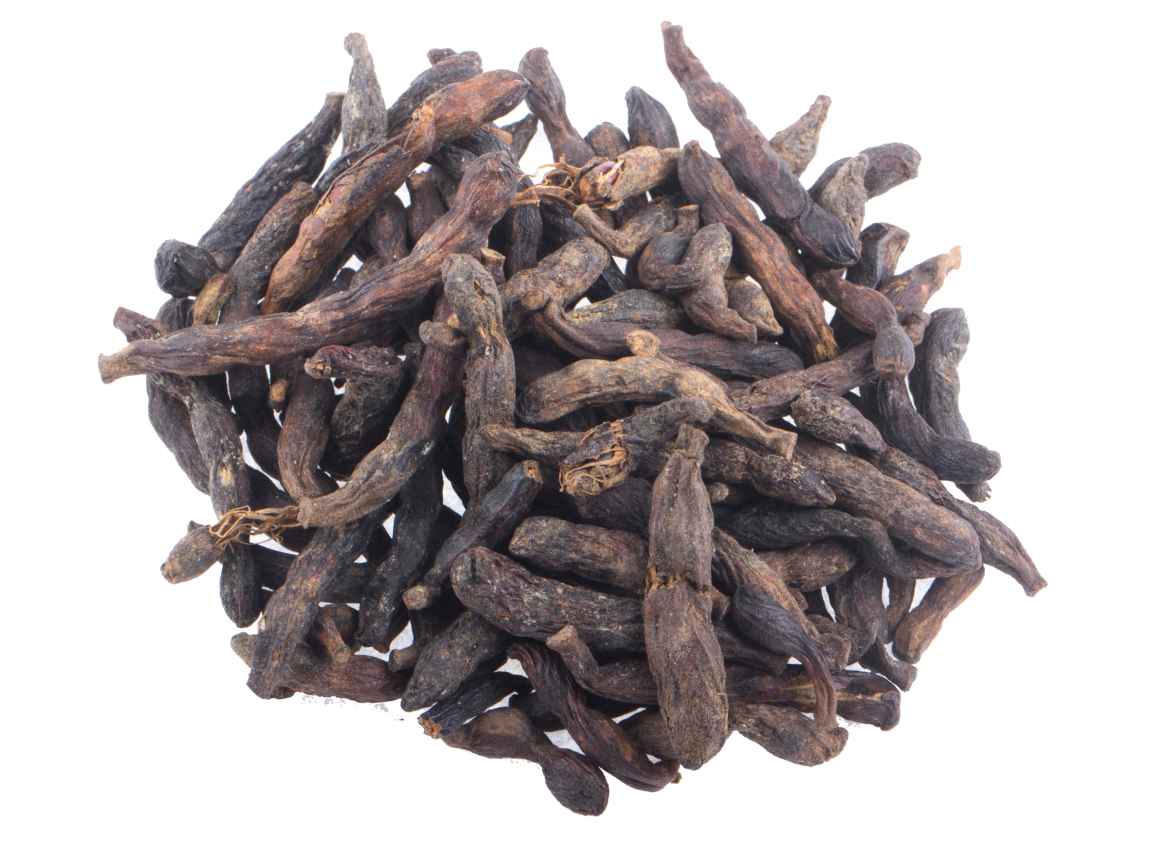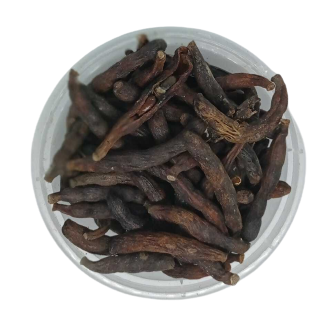Get In Touch
Info@fitfaysal.com

You’ve landed on this article in search of the numerous benefits of Uda seeds, am I right?
Uda seeds contain various compounds, such as antioxidants, alkaloids, and flavonoids, that can help you lose weight, are used to control bleeding in women, aid in the treatment of respiratory diseases, and aid in the treatment of digestive problems.
And there’s more! Which I will take you through in this post.
This seed carries many names, like Negro pepper, Senegal pepper, Ethiopian pepper, grains of Selim in English, Uda in Igbo, Erunje in Yoruba, and Kimba in Hausa. These small yet potent seeds have been revered for generations in traditional African practices.
From the origins of these seeds to their diverse applications, I aim to help you understand why Uda seeds have earned a place of importance in both traditional medicine and modern-day health-conscious lifestyles.
But first, what is Uda seed?
Uda seeds, scientifically known as Xylopia aethiopica, are small, dark brown seeds derived from a tropical African deciduous aromatic tree.
Other parts of the plant, such as the stem, leaves, and roots, also have medicinal properties.
For centuries, Negro pepper seeds have been a staple in traditional medicine and culinary practices, renowned for their distinct flavor and a plethora of health benefits.
Rich in essential oils, alkaloids, and other bioactive compounds, Uda seeds boast a unique profile that contributes to their therapeutic properties and nutritional value.
Originating from the lush landscapes of West Africa, these seeds have been held in high regard among indigenous communities.
Why do Uda seeds have this hype in the first place?
It turns out even our forefathers were aware of the benefits of this seed, not just health-wise but in various traditional aspects.
Culinary Heritage: In many African regions, Uda seeds play a significant role in the culinary heritage, making them more than just a spice.
Their warm, peppery flavor adds a distinct flavor to dishes, making them an essential ingredient in regional cuisines.
Traditional Medicine: Uda seeds have long been prized for their therapeutic qualities, even outside of the kitchen.
Traditional healers and herbalists throughout Africa have used them medicinally for a variety of ailments, ranging from respiratory problems to digestive aid.
Symbolism: Uda seeds didn’t stop at practical applications and were used as a form of cultural symbolism.
In some cultures, these seeds are used in ceremonies to represent protection, well-being, and spiritual significance.
Used for Preservation: Because of their aromatic nature, Uda seeds have historically been used as natural preservatives.
They are added to certain foods to extend their shelf life and prevent spoilage.
They aren’t called “grains of selim” for no reason. After looking at their nutritional profile, you may find out what makes them a power seed.
In case you don’t know, this is an impressive list of nutrients.
It also contains various other compounds, like flavonoids, alkaloids, terpenoids, fatty acids, and more, that give them their extensive health benefits.

Aside from their aromatic presence in delectable delights, these seeds have an impressive array of health benefits.
But how much of it is true?
After thorough research, it seemed like Uda was the cure for nearly every health problem, but most of these proposed benefits don’t have much scientific backing behind them.
Here are some health benefits of Uda seeds that have actually been proven to an extent:
Studies indicate that Uda seeds may play a role in weight management and loss. Their potential to increase metabolic processes offers a natural way for those trying to lose weight.
They are also rich in dietary fiber, which gives you a sense of fullness, leading to less overall food consumption.
Packed with antioxidant compounds like phenols and flavonoids, Uda seeds defend your body from oxidative stress, shielding your cells from free radicals that can lead to various health issues.
The presence of bioactive compounds emphasizes their importance in promoting overall health.
According to research, Uda seeds can help lower bad cholesterol (LDL), promote cardiovascular health, and reduce the risk of related complications.
This study suggested that the presence of hypolipidemic components in Uda extract could be the cause.
Check out The 8 Health Benefits of Avocado Leaves You Need to Know
This dates back to historical African times, when people primarily used herbs for treatment.
Uda seeds have historically been used as a vermifuge, demonstrating their effectiveness in treating worm infestations.
They have anthelmintic properties due to compounds like terpenoids, which help the seeds combat worm infestations.
Modern research hints at the potential of Uda seeds for improving renal function.
A study found that Uda extract can increase the reabsorption of potassium and sodium levels in your body, which is vital for better kidney function.
With historical applications in controlling bleeding, Uda seeds offer a natural remedy for women facing menstrual irregularities.
This use of Uda seeds is linked to coagulant properties.
Nutrients like vitamin K play a role in coagulation, which offers a natural remedy for regulating menstrual blood flow.
Uda seed possesses properties that can aid in headache relief.
In historical times, Africans used to apply crushed Uda seeds to their foreheads to alleviate this common ailment.
This may be because Uda seeds exhibit anti-inflammatory effects, attributed to compounds like tannins, which support headache relief.
The traditional use of Uda seeds in malaria treatment finds support in modern studies.
Compounds like alkaloids present in Uda seeds showcase antimalarial properties that can aid the fight against preventing or curing this disease.
Check out 9 Health Benefits of Prekese (Uses & Effects)
The bark of Uda tree can be used to treat respiratory system diseases like bacterial pneumonia, bronchitis, the common cold, and even asthma.
Historical applications for treating such ailments are consistent with modern scientific findings.
Rheumatism is a condition that causes chronic pain and inflammation in the joints, muscles, and connective tissue.
The anti-rheumatic properties of Uda seeds are attributed to anti-inflammatory components such as saponins, which provide a natural alternative for those suffering from joint pain.
Whether applied topically or incorporated into skincare, they have the potential to address dermatological concerns like itching and boils, to name a few.
Uda seeds contain essential fatty acids, which are nutrients that play a role in combating skin concerns.
Uda seeds’ digestive benefits are linked to dietary fiber and enzymes.
These elements promote gut health by alleviating digestive issues and promoting a healthy digestive system.
Modern research supports the traditional recognition of their digestive benefits.
Uda seeds may play a role in diabetes prevention and management.
A study showed that chloroform extract from Uda not only helped regulate glucose in the body but also prevented hyperlipidemia.
It also contains nutrients like magnesium and fiber, which contribute to blood sugar regulation.
If you want to harness all those amazing health benefits of Uda, consider adding them to your diet with these effective and delicious methods:
How: Grind Uda seeds into a fine powder and add them to your soups and stews.
Why: In Nigeria, his traditional method adds a peppery flavor and also allows you to benefit from its medicinal properties as the seed powder infuses into the liquid.
How: With your cooking oil, heat the Uda seeds, strain them, and use the aromatic oil for drizzling or sautéing.
Why: The infused oil preserves the essence of Uda seeds, offering a versatile cooking medium with potential health-promoting compounds.
How: Steep Uda seeds in hot water to create a tea infusion.
Why: Uda seed tea can be a soothing beverage and a convenient way to introduce its health benefits into your daily routine.
How: Crush or grind Uda seeds and use them as a seasoning for meats.
Why: Adding Uda seeds to your meat seasoning not only enhances the taste but also allows you to enjoy its antimicrobial and anti-inflammatory properties.
How: Mix crushed Uda seeds into condiments like mayonnaise or yogurt-based dips.
Why: This adds a subtle flavor to your condiments and is a great way to consume Uda seeds while getting their health benefits.
While there is no set daily intake for Uda seeds, a reasonable estimate for moderate consumption could be around 1-2 grams per day.
This is a rough estimate that may vary depending on individual factors such as health status, dietary preferences, and specific uses.
It is important to start with a small amount and see how your body reacts.
If you are using Uda seeds for culinary purposes, such as cooking or as a spice, you can adjust the amount to your taste.
However, for therapeutic uses or if you have any health concerns, it’s recommended to consult with a healthcare professional or a nutritionist.
While Uda seeds have numerous health benefits, it is important to be aware of potential concerns and side effects associated with their consumption.
Here are some points to consider:
Allergies: People with allergies to spices or related plant families may experience allergic reactions to Uda seeds.
It is critical to keep an eye out for any signs of allergy, such as itching, swelling, or difficulty breathing.
Pregnancy and Breastfeeding: Pregnant and breastfeeding women should use Uda seeds cautiously.
Because there is little research on the safety of Uda seeds during these times, it is best to consult with a healthcare professional beforehand if you want to use them for health reasons.
Digestive Sensitivity: Some people may experience digestive discomfort, such as bloating or gas, after eating Uda seeds.
Start with a small amount and see how your body reacts if you have a sensitive digestive system.
Medication Interactions: Uda seeds may interact with certain medications.
If you regularly take medications, especially those that affect blood clotting or blood pressure, talk to your doctor before adding Uda seeds to your diet for health reasons.
It’s important when using Uda seeds to moderate and understand that individual reactions can vary and that what suits one person may not suit another.
There you go! 13 health benefits of Uda seeds that have some scientific backing.
The nutritional profile of Uda or Negro pepper seeds showcases not only their rich flavors but also their substantial contribution to a healthy diet.
Packed with essential nutrients like protein, dietary fiber, and an impressive array of vitamins and minerals, these seeds stand out as a nutritional powerhouse.
Exploring their health benefits, we find that Uda seed extracts offer more than just a flavorful addition to dishes.
Scientific studies support several health claims, including weight management, antioxidant defense, cholesterol reduction, and their historical role in treating various ailments, from worm infestations to respiratory issues.
Here are some quick answers to frequently asked questions about Uda:
There is no scientific evidence to support the claim that Uda drinks can induce abortion. It’s crucial to rely on medically proven methods for pregnancy-related decisions.
While traditional uses suggest that Uda seeds might aid digestion, there is insufficient scientific evidence to support their effectiveness in treating gastric ulcers.
To use Uda seeds for pepper soup, grind them into a fine powder and add the powder to your soup during the cooking process. This traditional method not only enhances the flavor of the soup but also allows you to benefit from the medicinal properties of the seeds.
There is no scientific evidence to support the use of Uda seeds for breast enlargement. Claims regarding such benefits are often based on traditional uses, and it’s essential to approach them with caution.
While some might chew Uda seeds for their peppery flavor, it’s important to note that their intense taste can be overpowering.
Pregnant women should use Uda seeds cautiously, as limited research exists on the safety of Uda seeds during pregnancy.
While there is no set daily intake for Uda seeds, a moderate estimate is around 1-2 grams per day.